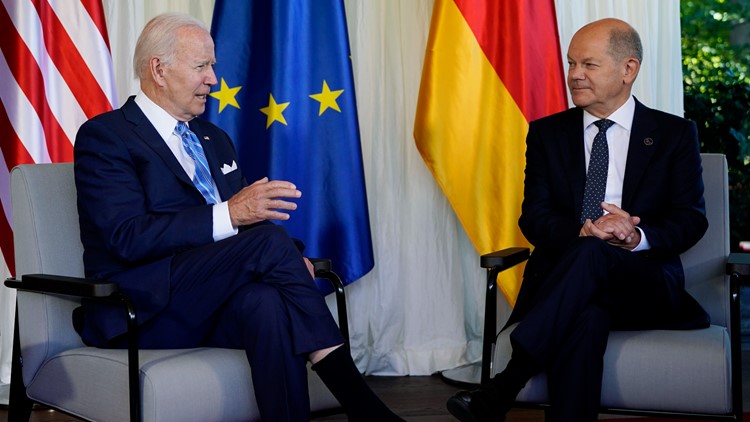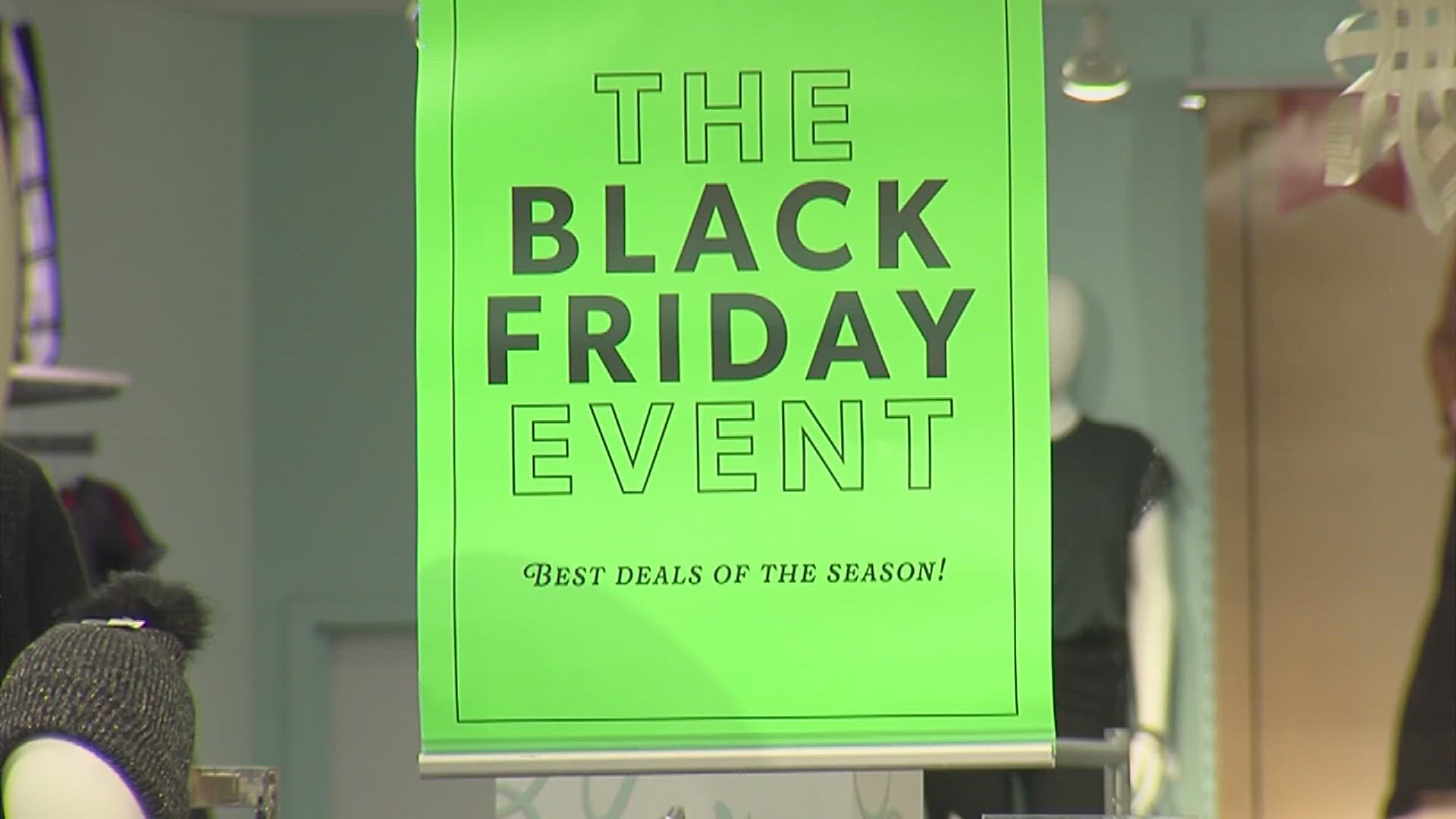President Joe Biden said Sunday that the United States and other Group of Seven leading economies will ban imports of gold from Russia, the latest in a series of sanctions that the club of democracies hopes will further isolate Russia economically over its invasion of Ukraine.
A formal announcement was expected Tuesday as the leaders hold their annual summit.
Biden and his counterparts will huddle on the summit's opening day Sunday to discuss how to secure energy supplies and tackle inflation, aiming to keep the fallout from Russia’s invasion of Ukraine from splintering the global coalition working to punish Moscow.
Hours before the summit was to formally open, Russia launched missile strikes against the Ukrainian capital Sunday, striking at least two residential buildings, Kyiv Mayor Vitali Klitschko said. They were the first such strikes by Russia in three weeks.
Senior Biden administration officials said gold is Moscow's second largest export after energy, and that banning imports would make it more difficult for Russia to participate in global markets. The officials spoke on condition of anonymity to discuss details before the announcement.
British Prime Minister Boris Johnson said the ban on Russian gold will “directly hit Russian oligarchs and strike at the heart of Putin’s war machine," a reference to Russian President Vladimir Putin.
“Putin is squandering his dwindling resources on this pointless and barbaric war. He is bankrolling his ego at the expense of both the Ukrainian and Russian people,” Johnson said. “We need to starve the Putin regime of its funding.”
In recent years, gold has been the top Russian export after energy — reaching almost $19 billion or about 5% of global gold exports, in 2020, according to the White House.
Of Russian gold exports, 90% was consigned to G-7 countries. Of these Russian exports, over 90%, or nearly $17 billion, was exported to the UK. The United States imported less than $200 million in gold from Russia in 2019, and under $1 million in 2020 and 2021.
Biden arrived in Germany’s picturesque Bavarian alps early Sunday to join his counterparts for the annual meeting of the world's leading democratic economies. Reverberations from the brutal war in Ukraine will be front and center of their discussions. Biden and the allies aim to present a united front in support of Ukraine as the conflict enters its fourth month.
Unity was the message Biden took into a pre-summit sit-down with German Chancellor Olaf Scholz, who holds the G-7's rotating presidency and is hosting the gathering.
“We've got to make sure we have us all staying together. You know, we’re gonna continue working on economic challenges that we face but I think we get through all this,” Biden said.
Scholz replied that the “good message” is that “we all made it to stay united, which Putin never expected,” a reference to Russian President Vladimir Putin.
“We have to stay together, because Putin has been counting on, from the beginning, that somehow NATO and the G7 would splinter, but we haven’t and we’re not going to," Biden said. "We can’t let this aggression take the form it has and get away with it.”
Biden and the leaders of Britain, Canada, France, Germany, Italy and Japan, plus the European Union, were spending Sunday in both formal and informal settings, including working sessions on dealing with the war's effects on the global economy, including inflation, and on infrastructure.
Among the issues to be discussed are price caps on energy, which are meant to limit Russian oil and gas profits that Moscow can put to use in its war effort. The idea has been championed by U.S. Treasury Secretary Janet Yellen.
A senior German official, speaking on condition of anonymity consistent with department rules, said the U.S. idea of price caps was being discussed intensely, in terms of how it would work and how it would fit with the U.S., EU, British, Canadian and Japanese sanctions regimes.
Officials were also set to discuss how to maintain commitments to addressing climate change while also solving critical energy supply needs as a result of the war.
“There’s no watering down of climate commitments,” John Kirby, a spokesman for Biden's National Security Council, said Saturday as the president flew to Germany.
Biden is also set Sunday to formally launch a global infrastructure partnership designed to counter China’s influence in the developing world. He had named it “Build Back Better World” and introduced the program at last year’s G-7 summit.
Kirby said Biden and other leaders would announce the first projects to benefit from what the U.S. sees as an “alternative to infrastructure models that sell debt traps to low- and middle-income partner countries, and advance U.S. economic competitiveness and our national security.”
After the G-7 wraps up on Tuesday, Biden will travel to Madrid for a summit of the leaders of the 30 members of NATO to align strategy on the war in Ukraine.



